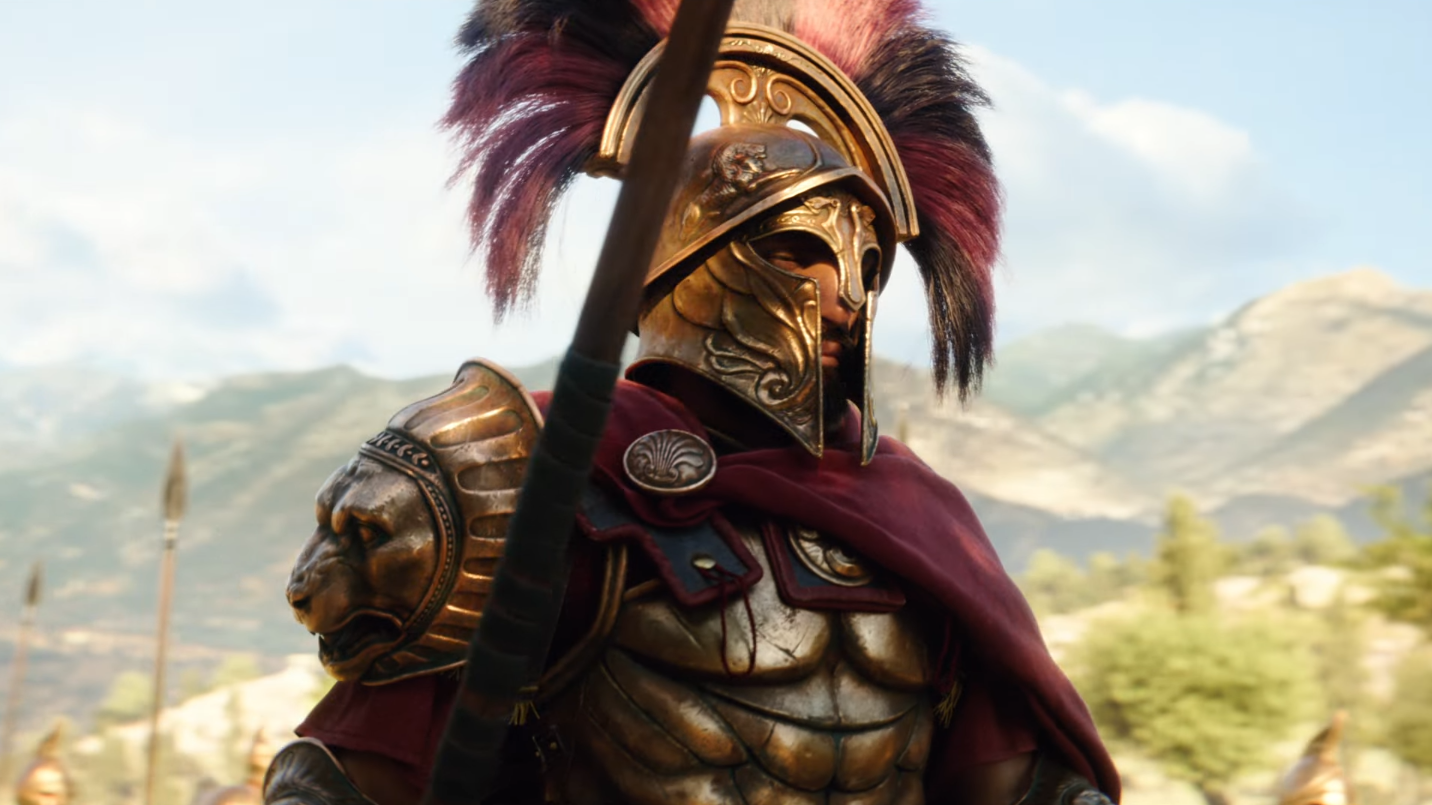Sparta in Titan Quest II
Sparta. Whether the name calls to mind Lacedaemon, Helen of Troy, Leonidas, or the Peloponnesian Wars, Sparta’s legend stands apart. In classical times, its influence stretched across the Peloponnesian peninsula and as far away as Italy.
So naturally, we wanted to feature Sparta in Titan Quest II. But we didn’t want these to be the same old Spartans. In keeping with our philosophy, we wanted to present a unique and fantastical twist that was nevertheless rooted in the history and classical stories that inspire us.
Ours is a world in which the monsters of myth are real, and they pose a real threat to the humans who live among them. Until recently, the Spartans and their powerful military served the role of protectors, defending the towns and villages of Greece from these mythological threats.


But what happens when Sparta falls, and that protection is gone?

Eagle-eyed observers may have noticed that our intro cinematic shows a wall ringing the city of Sparta. Of course, historical Sparta had no such wall. We don’t want to spoil too much, but imagine what happens when the most powerful city-state on the Peloponnesian peninsula turns inward and walls itself off, while seeking a power that can drive back the monstrous hordes and make them rivals to the gods. Imagine what happens when their hubris draws the attention of Nemesis, goddess of retribution, and she takes it on herself to punish them.
This is just a teaser of what’s going on in the world of Titan Quest II when the player starts the game. As they try to evade Nemesis’s wrath and free those she’s punished, their journey will reveal more about what happened to Sparta and why.

And as for that Spartan hipparch featured in the cinematic? He has a role to play, too, and he’s sure to cross the player’s path. To know more, you’ll just have to play the game. We don’t want to reveal all our secrets.

So naturally, we wanted to feature Sparta in Titan Quest II. But we didn’t want these to be the same old Spartans. In keeping with our philosophy, we wanted to present a unique and fantastical twist that was nevertheless rooted in the history and classical stories that inspire us.
Ours is a world in which the monsters of myth are real, and they pose a real threat to the humans who live among them. Until recently, the Spartans and their powerful military served the role of protectors, defending the towns and villages of Greece from these mythological threats.


But what happens when Sparta falls, and that protection is gone?

Eagle-eyed observers may have noticed that our intro cinematic shows a wall ringing the city of Sparta. Of course, historical Sparta had no such wall. We don’t want to spoil too much, but imagine what happens when the most powerful city-state on the Peloponnesian peninsula turns inward and walls itself off, while seeking a power that can drive back the monstrous hordes and make them rivals to the gods. Imagine what happens when their hubris draws the attention of Nemesis, goddess of retribution, and she takes it on herself to punish them.
This is just a teaser of what’s going on in the world of Titan Quest II when the player starts the game. As they try to evade Nemesis’s wrath and free those she’s punished, their journey will reveal more about what happened to Sparta and why.

And as for that Spartan hipparch featured in the cinematic? He has a role to play, too, and he’s sure to cross the player’s path. To know more, you’ll just have to play the game. We don’t want to reveal all our secrets.







